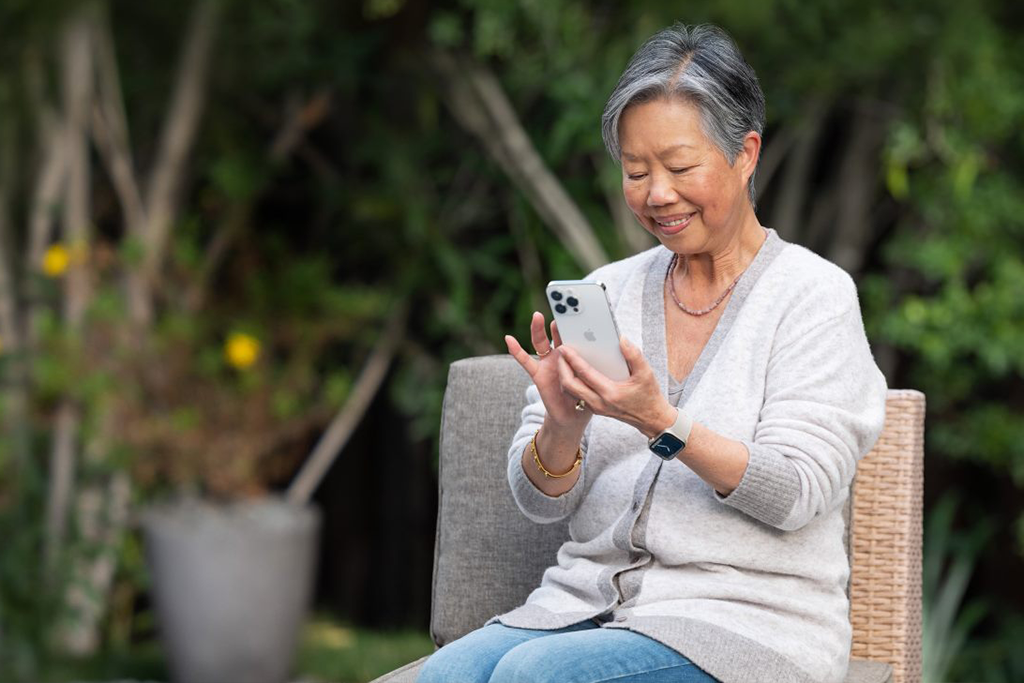Fast, flexible and proven, IQVIA’s industry-leading electronic clinical outcome assessment (eCOA) platform ramps up efficiencies, delivers real-time data, and sharpens insights through best-in-class technology and a better patient experience.
When COVID-19 forced the mass closure of trial sites and hospitals, regulators were quick to encourage the use of technology and remote monitoring to keep trials moving forward, and patients safe and engaged. It opened the door for patients to use their own personal devices to record trial data and gave sponsors the nudge they needed to support a BYOD (bring your own device) approach to data collection.
Regulators respond to COVID
In March, 2020, the US Food and Drug Administration (FDA) released a Guidance on Conduct of Clinical Trials of Medical Products during COVID-19 Pandemic, which specifically suggests using virtual assessments and monitoring where appropriate, and encourages sponsors to provide devices to patients “who do not have access to appropriate communication technology (e.g., cell phones or Internet).” This phrasing indicates support for patients to use their own devices to complete eConsent forms and electronic clinical outcomes assessments (eCOAs), if they have them.
The European Medicines Agency (EMA) took an even more direct stance. Its recently updated Draft Guideline on Computerized Systems and Electronic Data in Clinical Trials specifically says ePRO and eCOA data may be captured “by privately owned devices, such as mobile phones, tablets, computers and wearables, i.e. BYOD.”
This language and specific use of the term “BYOD” caused a shift in thinking about using personal technology in a clinical setting and highlighted new opportunities to cut costs and improve engagement. Allowing patients to use their own devices eliminates the time and cost of commissioning devices for every patient, which can trim hundreds of thousands of dollars from the trial budget while accelerating study start-up.
Easy and seamless
Patients also benefit from this shift. Giving them the option to download study apps directly to their phones frees them from having to lug around an extra piece of technology for the sole purpose of recording healthcare data. They can use the device they are familiar with, that is configured to their preferences; and all adjacent trial communications, alerts and calendar data occur on the same device. It is one more way to eliminate barriers to trial participation, and to weave the research experience into the flow of patients’ daily lives.
As an added benefit, BYOD options appear to also increase compliance. One 2020 study run by IQVIA of 256 patients using their own devices found 88 percent completed weekly eCOA tasks .
Patients also appear open to the BYOD option. In one 2018 study of 155 subjects, 45 percent felt BYOD would be more convenient than using a provisioned device, and another 40 percent had no preference. Only 15 percent preferred the provisioned device.
Data security and BYOD
The benefits of BYOD are undeniable. However, when choosing BYOD, sponsors need to adequately address concerns about data security, app performance, and regulatory compliance. That includes adhering to the EU’s General Data Protection Regulation (GDPR) for “Minimal data collection” where required. Working with vendors who understand the technology and the clinical regulatory environment is key to ensuring all eCOAs and other digital tools follow all regulations and can prove compliance.
And where patients don’t have a smart phone, or don’t want to download trial apps to their phones, sponsors need to determine ahead of time whether they will provide a comparable provisioned device, or use this preference as an exclusion criteria.
These are all issues that can be easily addressed through effective trial planning and shouldn’t be a barrier to consider BYOD for future trials.
Not going away
Historically, the uptake of BYOD by sponsors has been slow, primarily due to regulatory concerns and lack of experience using personal devices in a clinical setting. The pandemic forced sponsors to get over these concerns. It gave the industry a chance to prove that BYOD can be a safe, convenient, and cost-effective way to capture primary endpoint data for regulatory submissions.
It is expected that regulators will continue to allow for BYOD in future trials, giving sponsors a permanent data collection option in the future.
If you’d like to explore a BYOD strategy for your next study, please reach out to us at ecoa@iqvia.com.
Related solutions
Explore our Frequently Asked Questions (FAQ) page to learn more about general industry eCOA topics and also specific details about our IQVIA eCOA solution.
In these short demo videos, learn more about some of the key capabilities within the IQVIA eCOA platform including how to easily create an assessment, utilize the AI design tool, access automated screenshots and documentation, export/import translations, and view study data and reports.
Technology informed by unparalleled Decentralized Trials (DCT) operational experience and delivered at global scale.
Ease the burden on your sites and make it easier and more appealing for patients to enroll and remain engaged.
Combine data science, technology, and analytics driven by artificial intelligence to support new efficiencies and business insights -- without additional capital investment.


























